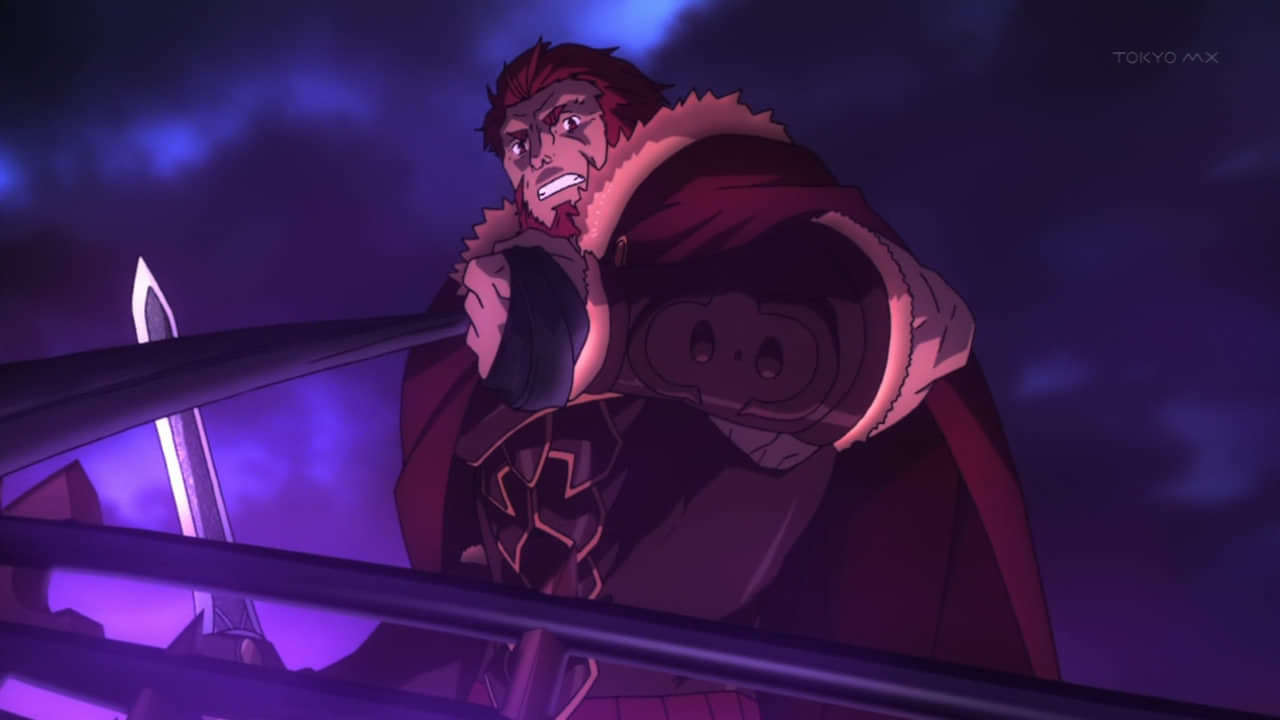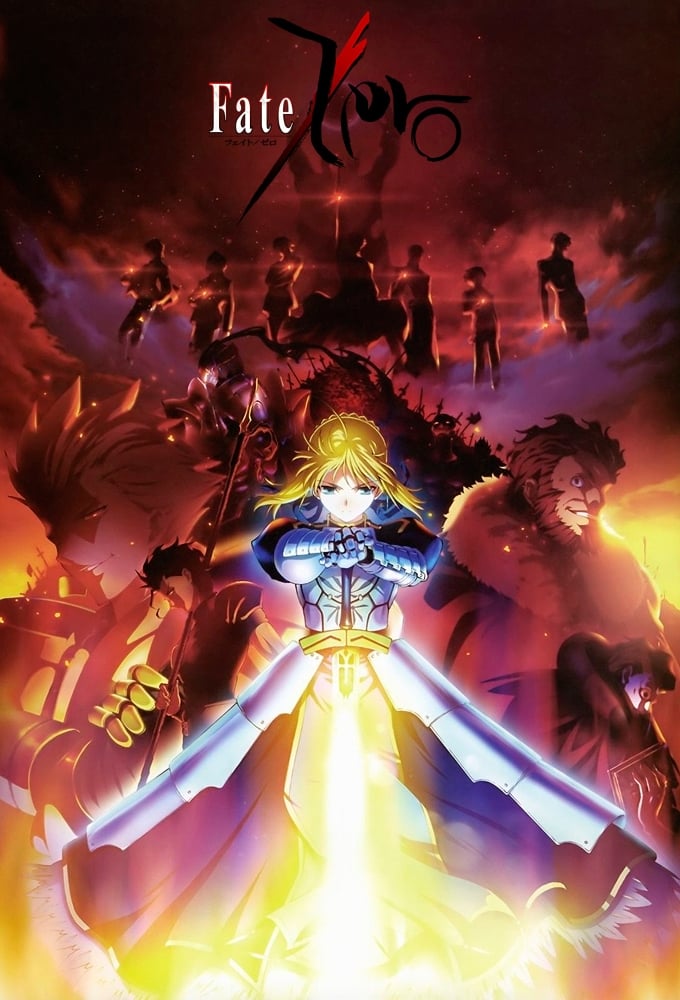
Fate/Zero (2011)
Fate/Zero (2011)
Season two doesn’t waste any time — it throws us right back into the fire, and this time, it’s all spiraled so far out of control you can almost feel the weight of it. Sure, the Grail War’s always been brutal, but this is the first time it really sinks in what it means for a conflict like this to spill over — for the world outside the mages’ little playground to start crumbling. Suddenly it’s not just Servants and Masters — it’s civilians, it’s soldiers sent to investigate rumors about a monster no one can even imagine. And the irony is… they’re right. They are the first to die. Not even players in the game — just collateral damage waiting to happen.
What hits me most about this episode is how perfectly it captures the moment Fate/Zero fully explodes into chaos—this isn’t just a battle anymore, it’s the war spiraling out of control. And I love how the story forces every character, every ideology, into collision. It’s overwhelming in the best possible way, because you feel—really feel—the scale of what’s happening. Suddenly, it’s not just magi fighting in the shadows. Civilians, soldiers, the entire city—everyone’s at risk. And that shift is exactly what I’ve been waiting for: the moment the Grail War stops being a game between elites and turns into an apocalypse.
The way the episode starts—with the soldiers questioning the absurdity of a giant monster rumor—might seem like dark comedy, but to me, it’s genius. Because it makes one thing painfully clear: the Grail War is happening right next to us, and yet we know nothing. The soldiers’ fatalistic joke—“we’ll die first”—isn’t just gallows humor. It’s the blunt truth. And that’s what I love about Fate/Zero: it never lets you forget how small humans are compared to the madness the magi unleash.
And then there’s Caster’s monster. Honestly, I love how nightmarish it is—this grotesque, regenerating mass of flesh and eyes, a perfect manifestation of Caster’s twisted worldview. It’s not just an enemy, it’s a violation of everything natural. And watching Saber, Rider, and Lancer—these legendary figures—struggle against it drives home just how hopeless this all feels. It’s one of those rare moments where the show makes you wonder if anyone’s going to get out of this alive. And I love that feeling. That tension. That scale. But the real brilliance of this episode? Ryuunosuke’s death. It’s so quietly devastating. Of all people, he is the one who dies satisfied. That smile—because he finally sees the “beauty” of death—it’s sick, it’s wrong, and yet it’s the most honest death we’ve seen so far. Everyone else is clawing for survival or chasing ideals, but Ryuunosuke? He dies exactly how he wanted. There’s something so darkly poetic about that. Fate/Zero is full of characters struggling with their purpose, but this lunatic finds his right at the end. And I hate how much that stuck with me. Because deep down, there’s a brutal truth in his ending: maybe the ones who understand the horror best are the ones we’d least expect.
And then Kirei heals Kariya—and that’s the moment I realized just how much I love watching Kirei’s descent. He should kill Kariya. He wants to. But instead, he keeps him alive—not out of mercy, but curiosity. That, right there, is peak Kirei. It’s so unnerving, so fascinating—because this isn’t a villain monologuing about power. It’s a man playing with human suffering like a child pulling the wings off a fly, just to see what happens. And I love it because it makes Kirei feel dangerous in a way no power level ever could. But the part that hit me hardest—the one I keep coming back to—is Kariya and Tokiomi’s confrontation. It’s not even the fight—it’s what it means. Because Kariya isn’t here for the Grail or glory. He’s here for Sakura. And that makes him the most human person in this war. Watching him scream, break down, burn from the inside out because of those Crest Worms—it’s gut-wrenching. This is what sacrifice really looks like. No noble speeches. Just a broken man who knows he’s already lost but keeps fighting because it’s all he has left. And what destroys me is Tokiomi’s calm, cold logic. The way he talks about Sakura—it’s not even cruel. It’s detached. Like he genuinely believes sacrificing a daughter is fine if it serves the family. And that’s what makes him monstrous. Not rage, not hate—just this unwavering belief in the system. And the worst part? I get it. I hate it, but I get it. And that is why this show hits so hard. It forces me to stare down worldviews I despise—and see the logic behind them.
The whole episode is this tangled web of ideology, love, hatred, and pride colliding—and the pacing is perfect. Just when you think it’s all about Caster, bam—Berserker hijacks a plane. Gilgamesh gets pissed. Tokiomi proves how useless he is. And underneath it all, Kirei is pulling strings, already moving toward his betrayal. Every scene feels like a countdown to disaster, and I love that simmering tension. And then it all clicks—the reveal that Saber is the only one who can end this. But she can’t because of Lancer’s curse. And that’s the gut punch I adore: the war comes down to pride, to old grudges, to wounds inflicted just because. All this destruction, all this chaos—and it’s a personal vendetta that keeps them from stopping it. That’s Fate/Zero in a nutshell. The world burns not because of power, but because people choose to let it.
By the end, I was just sitting there thinking: This is it. This is why I love this show. Because it’s messy, it’s brutal, and no one walks away clean. Even the victories taste like ash. And the best part? The war’s just getting started. I cannot wait to see where this goes next.
Loading




